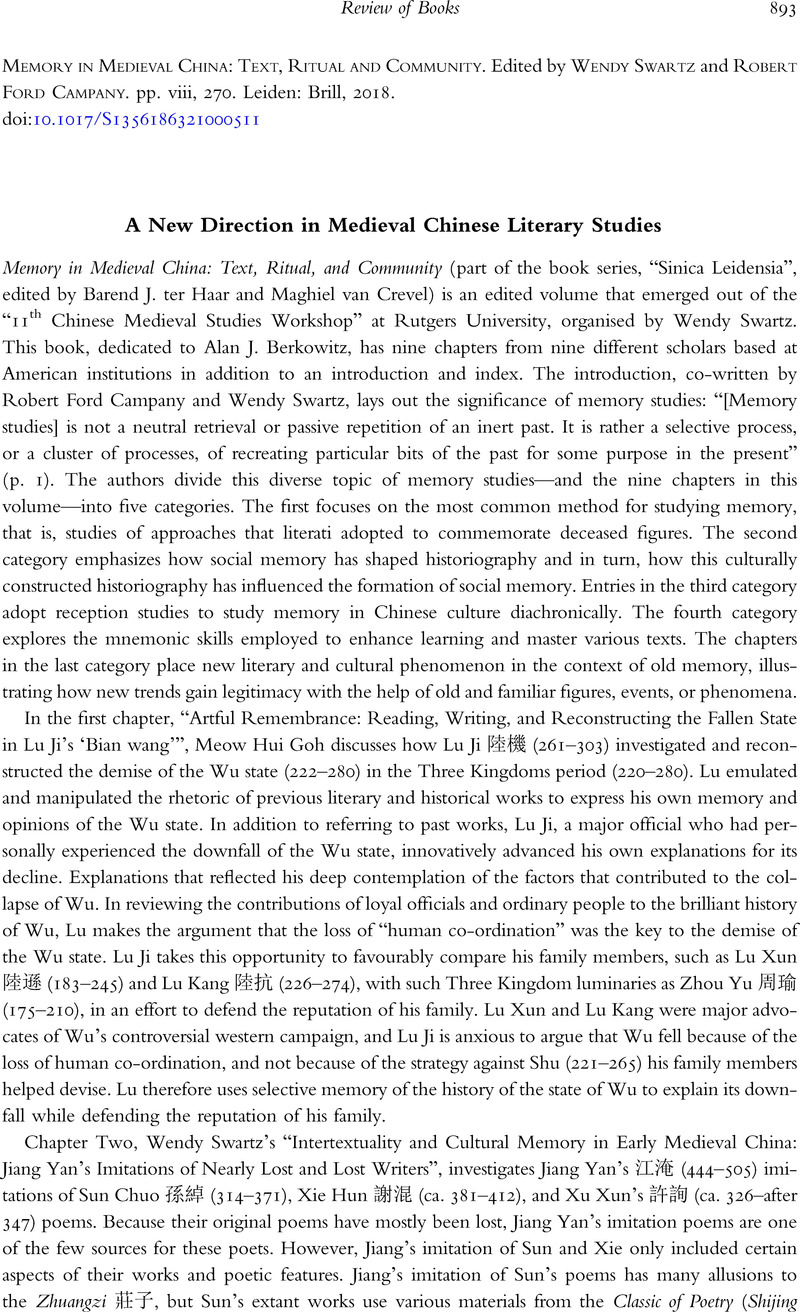Published online by Cambridge University Press: 25 June 2021

1 Swartz, Wendy, Reading Philosophy, Writing Poetry: Intertextual Modes of Making Meaning in Early Medieval China (Cambridge, Mass, 2018)Google Scholar.
2 Puett, Michael J., “Ritual and Ritual Obligations: Perspectives on Normativity from Classical China”, Journal of Value Inquiry 49 (2015), pp. 543–550CrossRefGoogle Scholar.
3 For the topic of trauma and memory in pre-modern Chinese literature, see Idema, Wilt L., Li, Wai-yee, and Widmer, Ellen, (eds.), Trauma and Transcendence in Early Qing Literature (Cambridge, Mass., 2006)CrossRefGoogle Scholar; Li, Wai-yee, Women and National Trauma in Late Imperial Chinese Literature (Cambridge, Mass., 2014)CrossRefGoogle Scholar.
4 Tian, Xiaofei, The Halberd at Red Cliff: Jian'an and the Three Kingdoms (Cambridge, Mass., 2018), pp. 11–78CrossRefGoogle Scholar.
5 This chapter has a Chinese version. The Chinese and English versions are slightly different. See, Tian Xiaofei 田曉菲, “Yu Xin de ‘jiyi gongdian’: Zhonggu gongting shige zhong de chuangshang yu baoli” 庾信的“記憶宮殿”: 中古宮廷詩歌中的創傷與暴力, Shanghai daxue xuebao (Shehui kexue ban) 上海大學學報 (社會科學版), 4 (2017), pp. 52–64.
6 Ditter defines “objective” as “refer[ring] to the socially recognised communicative purposes of a genre” (p. 202).
7 Ditter defines “emplotment” as “the ways in which those pieces of information might be sequenced within a composition in constructing the memory of the deceased” (p. 204).